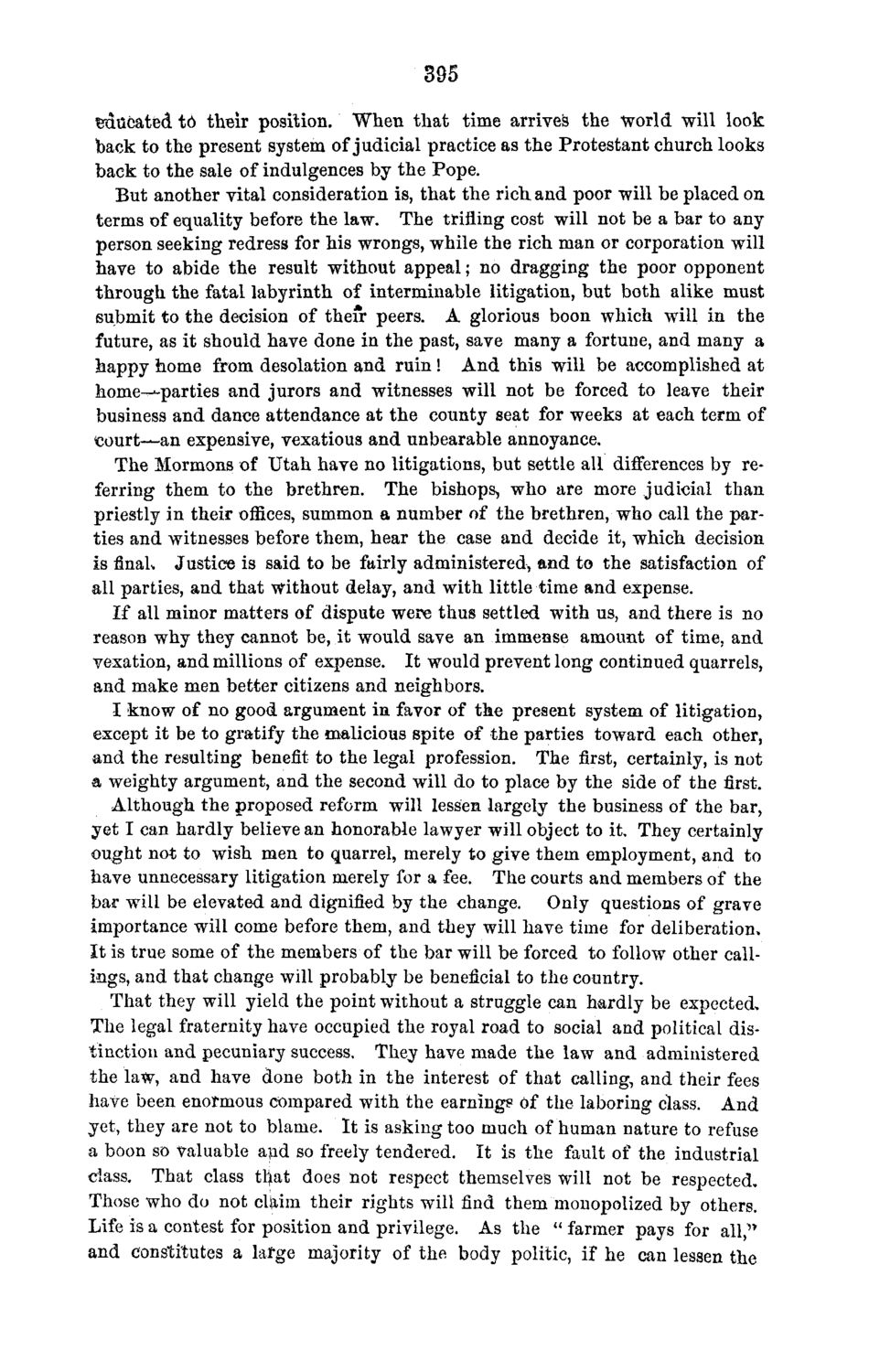| |
| |
Caption: Board of Trustees Minutes - 1870
This is a reduced-resolution page image for fast online browsing.

EXTRACTED TEXT FROM PAGE:
395 educated to their position. When that time arrives the world will look back to the present system of judicial practice as the Protestant church looks back to the sale of indulgences by the Pope. But another vital consideration is, that the rich, and poor will be placed on terms of equality before the law. The trifling cost will not be a bar to any person seeking redress for his wrongs, while the rich man or corporation will have to abide the result without appeal; no dragging the poor opponent through the fatal labyrinth of interminable litigation, but both alike must submit to the decision of then* peers. A glorious boon which will in the future, as it should have done in the past, save many a fortune, and many a happy home from desolation and ruin! And this will be accomplished at home—parties and jurors and witnesses will not be forced to leave their business and dance attendance at the county seat for weeks at each term of court-—an expensive, vexatious and unbearable annoyance. The Mormons of Utah have no litigations, but settle all differences by referring them to the brethren. The bishops, who are more judicial than priestly in their offices, summon a number of the brethren, who call the parties and witnesses before them, hear the case and decide it, which decision is finaL Justice is said to be fairly administered> and to the satisfaction of all parties, and that without delay, and with little time and expense. If all minor matters of dispute were thus settled with us, and there is no reason why they cannot be, it would save an immense amount of time, and vexation, and millions of expense. It would prevent long continued quarrels, and make men better citizens and neighbors. I know of no good argument in favor of the present system of litigation, except it be to gratify the malicious spite of the parties toward each other, and the resulting benefit to the legal profession. The first, certainly, is not a weighty argument, and the second will do to place by the side of the first. Although the proposed reform will lessen largely the business of the bar, yet I can hardly believe an honorable lawyer will object to i t They certainly ought not to wish men to quarrel, merely to give them employment, and to have unnecessary litigation merely for a fee. The courts and members of the bar will be elevated and dignified by the change. Only questions of grave importance will come before them, and they will have time for deliberation. It is true some of the members of the bar will be forced to follow other callings, and that change will probably be beneficial to the country. That they will yield the point without a struggle can hardly be expected. The legal fraternity have occupied the royal road to social and political distinction and pecuniary success. They have made the law and administered the law, and have done both in the interest of that calling, and their fees have been enormous compared with the earning? of the laboring class. And yet, they are not to blame. It is asking too much of human nature to refuse a boon so valuable a)id so freely tendered. It is the fault of the industrial class. That class tljat does not respect themselves will not be respected. Those who do not cl&im their rights will find them monopolized by others. Life is a contest for position and privilege. As the " farmer pays for all," and constitutes a large majority of the body politic, if he can lessen the
| |